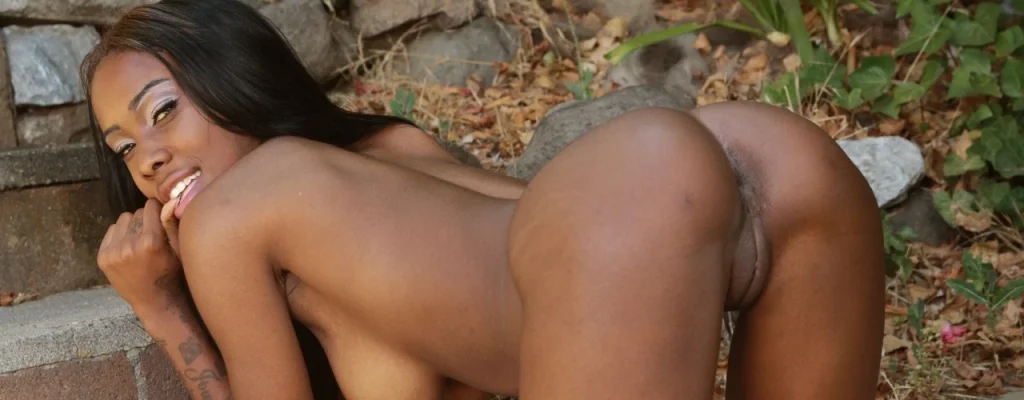Breaking the Frame: How Black Adult Performers Redefined the American Adult-Entertainment Industry
For most of its history, the American adult-entertainment industry mirrored the racial hierarchies of the society that produced it. In the 1970s and 1980s—the so-called Golden Age of Porn—Black women appeared rarely, often framed through stereotypes inherited from a century of racialized popular culture. They were present, yet seldom centered; visible, yet seldom celebrated. But over the past two decades, that imbalance has begun to change. A new generation of Black adult performers has not only claimed visibility but reshaped the aesthetics, economics, and politics of adult media itself. Their success has less to do with novelty than with authenticity—the ability to bring individuality, confidence, and creativity into a field long defined by narrow ideals of beauty and desire.

From Exoticism to Recognition
In the early years of mainstream adult film, the handful of Black actresses who appeared on screen were often reduced to caricature: the “forbidden fantasy,” the symbol of danger or excess. The framing said less about them than about the anxieties of white America. Yet even within those confines, pioneers such as Desiree West, Jeannie Pepper, and Heather Hunter found ways to assert identity. Their presence was quietly revolutionary—they brought a new visual language to screens that had been almost entirely white.
The 1990s and early 2000s marked a slow, uneven expansion. Cable networks, DVDs, and the rise of internet distribution loosened the industry’s gatekeeping. Viewers could choose for themselves, and those choices revealed a truth the mainstream had long ignored: audiences were hungry for diversity. Independent producers—many of them Black—built studios that centered Black performers without apology. The performers themselves began to cultivate direct relationships with fans, bypassing traditional hierarchies of casting and promotion.
The Digital Shift and a New Kind of Celebrity
The digital revolution transformed adult entertainment more radically than any other form of media. What had once been filtered through distributors and directors became immediate and participatory. Social media allowed performers to control their own image, market directly to followers, and shape public conversations around sexuality and race.
Black adult performers seized that opportunity with particular energy. They used platforms such as Twitter, OnlyFans, and Reddit not only to promote content but to humanize themselves—to speak about creativity, body image, and autonomy. The result was a kind of cultural correction: audiences no longer saw them as tokens within someone else’s narrative but as artists defining their own.
In that visibility, new stars emerged whose influence reached far beyond the adult world. They appeared in music videos, podcasts, and documentaries, speaking openly about pleasure, professionalism, and the politics of representation. Their confidence resonated with younger audiences raised in a culture that values authenticity over artifice.
Distinct Voices, Distinct Presence
What distinguishes many of today’s Black porn stars is not simply appearance but sensibility. They bring a groundedness—a sense of self—that resists the manufactured innocence that dominated earlier eras of adult film. Their performances, interviews, and online personas often emphasize joy, collaboration, and agency. That attitude challenges the old stereotype of the passive starlet and replaces it with something more modern: the performer as entrepreneur, storyteller, and public intellectual.
This redefinition has also changed the aesthetic of adult content itself. Directors and producers now draw from a wider palette of cultural influences—music, fashion, dance, and Black social media vernacular—to create styles of erotic imagery that feel alive and contemporary rather than formulaic. The shift isn’t only visual; it’s emotional. It foregrounds connection and personality, blurring the line between fantasy and identity.
Redefining Desire and Power
The growing popularity of Black performers has also exposed long-standing contradictions within American sexuality. The U.S. has always fetishized Black bodies while simultaneously policing them. Today’s visibility, however, transforms that old dynamic. When performers control their own platforms and profits, fetishization loses much of its power. What once exploited now empowers.
Their popularity signals more than curiosity; it reflects a change in collective imagination. The audience is learning to see beauty in a broader spectrum of skin tones, hair textures, and cultural styles. That expansion of desire is both aesthetic and moral—it acknowledges the humanity that earlier depictions ignored.
Industry Impact and Cultural Resonance
Economically, the influence of Black adult entertainers is undeniable. Their success on subscription-based platforms helped normalize direct-to-creator models now adopted by performers of every background. Creatively, they have pushed the industry toward inclusivity and experimentation. Many have become producers, directors, and mentors, ensuring that the next generation inherits a more equitable stage.
Culturally, their impact radiates beyond adult media. Discussions about representation in Hollywood, fashion, and music now echo debates first sparked in adult spaces. By asserting visibility in one of the most stigmatized corners of popular culture, Black performers have broadened the conversation about race, body politics, and autonomy everywhere else.

A Broader Reflection on Liberation
Ultimately, the story of Black stars in adult entertainment is a story about self-definition. It reflects the same trajectory seen in art, literature, and popular music: from marginalization to mastery, from being seen to choosing how to be seen. Their success is not merely a trend in viewing habits; it is part of a deeper transformation in how America understands beauty and freedom.
In the 1970s, the presence of a single Black woman in a centerfold could cause outrage. In the 2020s, Black creators command global audiences and build personal empires. That arc—from tokenism to autonomy—traces a broader social evolution. It shows that erotic representation, when reclaimed, can become a form of cultural authorship.
Legacy and Future
As the adult industry continues to fragment and decentralize, the influence of Black performers will likely expand even further. They have already redefined the business model, the aesthetic, and the politics of the field. More importantly, they have reframed the conversation about who gets to define desire itself.
Their rise is not only a story of entertainment but of liberation—proof that even within a commercial and often controversial industry, authenticity and creativity can dismantle old hierarchies. They remind audiences and fellow artists alike that sexuality, when owned rather than exploited, can be an act of self-knowledge and pride.
And so, the popularity of Black adult performers today is not a mystery or a fad. It is the natural consequence of a long struggle for visibility, artistry, and respect. In claiming their own image, they have done what every great cultural movement does: they have turned representation into revolution, transforming both an industry and the gaze through which America sees itself.
